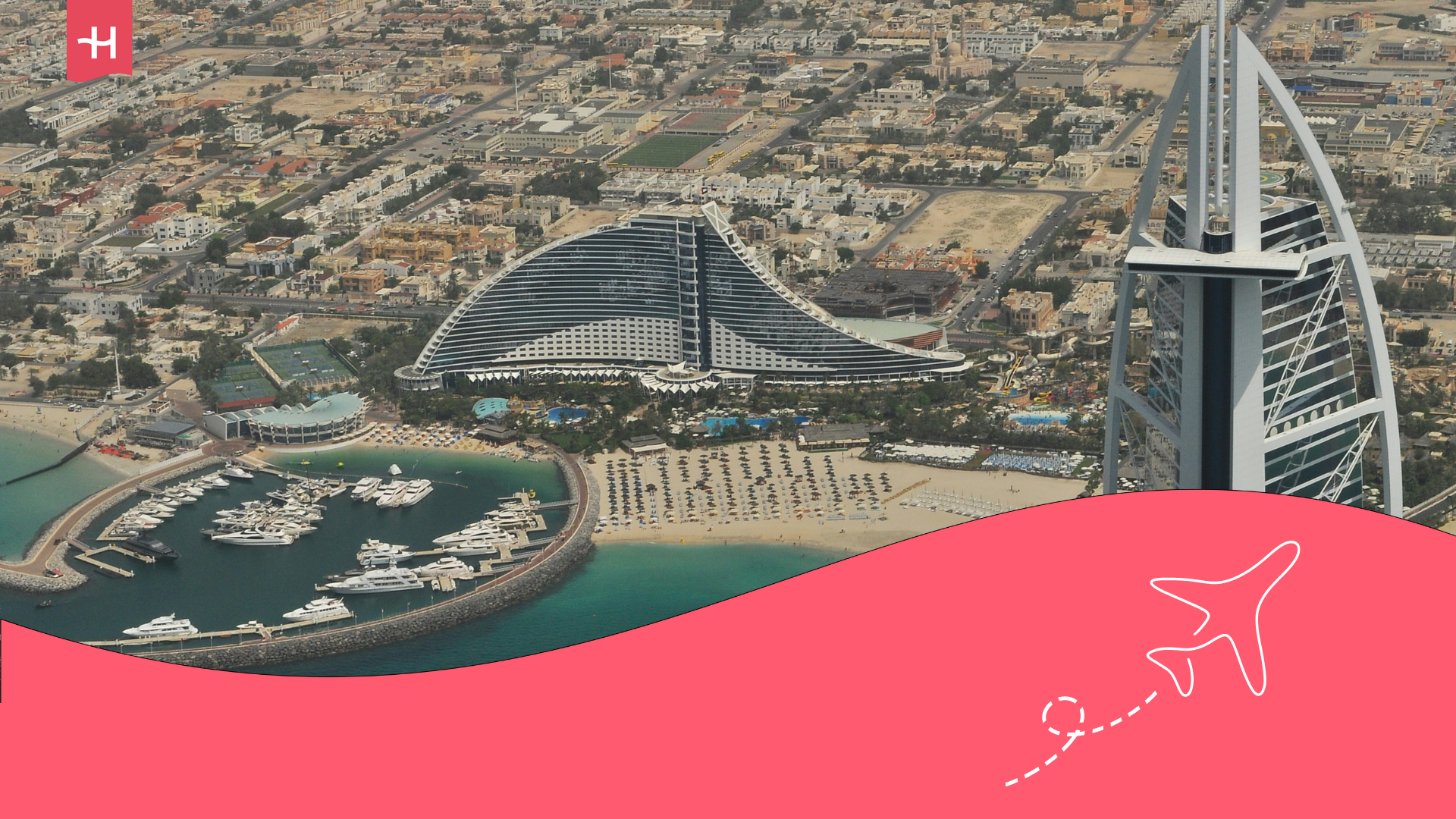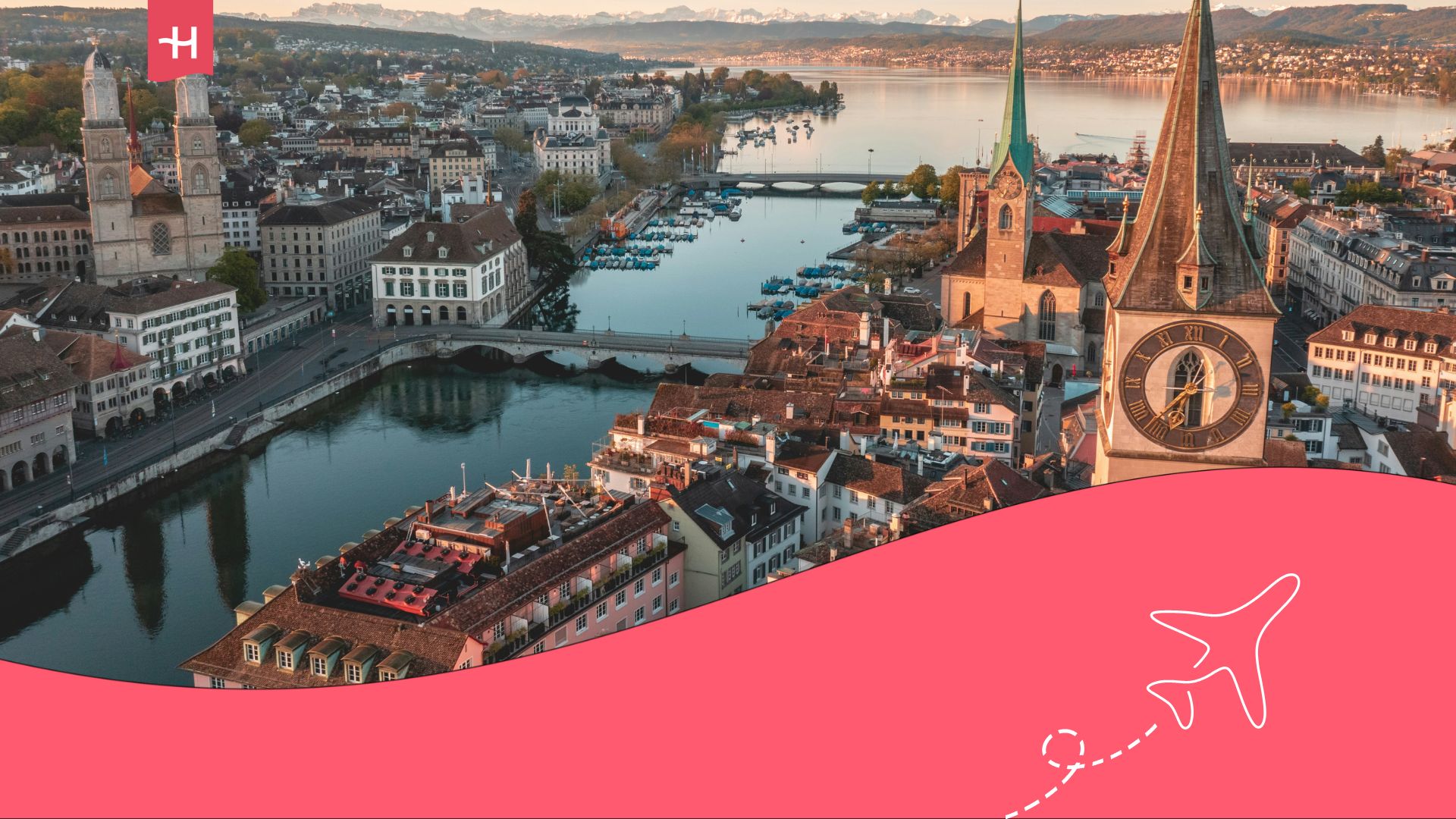Work in Iceland: Requirements and opportunities
Discover everything you need to know to work in Iceland: requirements, in-demand jobs, salaries and cost of living for foreigners.
Iceland is not just a destination to see the Northern Lights: It’s also a place where more and more foreigners decide to build their professional future. With a strong economy, competitive salaries, and a work culture based on trust and equality, working in Iceland has become a very attractive option.
But before packing, it’s key to understand how the Icelandic job market really works: What advantages it offers, what requirements you must meet, and especially which sectors are open to international talent. In this guide, we explain everything you need to know: From the most accessible to the highest-paying jobs, the cost of living, and where to find real job offers. If you’re taking the leap, it’s better to do so with clear and useful information.
Advantages of working in Iceland
Working in Iceland offers a series of benefits that go beyond salary. This country, known for its stability and impressive natural environment, has become an attractive destination if you seek quality of life and good working conditions. Here are some of the main advantages you’ll find when working in Iceland:
- Economic and social stability: Iceland has a solid economy, low unemployment, and high employment rates among the working population. Society benefits from institutional transparency and low corruption, creating a safe and reliable work environment.
- Competitive salaries: Although the cost of living is high, wages are also high. Iceland has one of the highest average salaries in Europe, allowing you to maintain a good standard of living and comfortably cover expenses such as housing, food, and transport.
- Quality of life and personal balance: The workweek in Iceland is about 37–40 hours, and free time and personal life are highly respected. Low population density, proximity to nature, and high safety levels make Iceland ideal if you value peace and well-being.
- High safety and low crime rates: Iceland is one of the safest countries in the world. Crime rates are extremely low, providing a sense of security whether living alone or with family.
- Strong welfare system: Workers have access to quality public services, free or affordable healthcare, unemployment benefits, family support, generous parental leave, and fair labor policies. This contributes to a more stable and protected life.
- Equality-driven work culture: Iceland is a pioneer in gender equality and labor rights. Hierarchical relationships are more horizontal than in other countries, promoting respect, autonomy, and collaboration between employees and employers.
- International community and openness: Although Icelandic is the official language, many companies operate in English, especially in tech, tourism, health, and construction. This eases integration for foreign workers and creates enriching multicultural environments.
Requirements to work in Iceland
To work legally in Iceland, you must meet certain requirements that vary depending on your country of origin. Iceland is part of the European Economic Area (EEA) and the Schengen Agreement, which directly affects entry and residency conditions for work. Here are the main requirements:

- EEA/EFTA citizens (e.g., EU, Norway, Liechtenstein, Switzerland): Do not need a work permit but must register with Registers Iceland if staying more than three months.
- Non-EEA/EFTA citizens: Must apply for a residence permit for work purposes before arriving. This process is handled by the Icelandic Directorate of Immigration and requires a confirmed job offer from an Icelandic employer.
- Specialised job offer permit: For qualified professionals when local workers are unavailable.
- Temporary worker permit: for fixed-term contracts, especially in sectors with seasonal demand like tourism, fishing, or agriculture.
- Skills-based work permit: For jobs requiring technical expertise or specific experience.
- Language requirements: Icelandic is the official language, but many jobs, especially in tech, tourism, and services, operate in English. Not mandatory, but proficiency (minimum B2) is helpful. Learning Icelandic adds value, especially in healthcare, education, or customer-facing roles.
- Valid passport (minimum 90 days after planned departure).
- Signed employment contract.
- Valid health insurance in Iceland.
- Proof of accommodation and financial solvency (for initial stay).
- Register at Registers Iceland within the first few days of arrival.
- Icelandic identification number (Kennitala): Once in Iceland, you must obtain the Kennitala, which allows access to healthcare, signing contracts, opening bank accounts, or renting property. This is one of the first procedures upon arrival.
Tips to start working in Iceland
- Prepare internet from day one: During the first months, having a connection is crucial to manage paperwork and communicate with employers. Holafly monthly plans offer an eSIM with unlimited data for Iceland: It activates upon arrival and can share data across devices. This avoids searching for physical SIM cards and ensures you start connected.
- Tailor your CV to Icelandic style: In Iceland, CVs are valued for being brief and direct: One page, clear bullet points with action verbs, and quantifiable achievements. Include a personalised cover letter reflecting motivation and cultural fit.
- Use local platforms and networking: Register on portals like storf.is or alfred.is, and follow companies on LinkedIn. Sending speculative applications is common and can open doors even without visible vacancies.
- Simplify accommodation: The rental market in cities like Reykjavik is competitive and expensive. Search in advance, consider shared apartments, and if possible, negotiate help with your employer; some companies provide housing support.
- Prepare for interviews: Interviews are often informal, sometimes in cafes. Punctuality, respect, and authenticity are valued. For virtual interviews, ensure a good connection from day one using your eSIM for Iceland.
- Check official resources: The Icelandic Directorate of Labour and Work.iceland.is provide specialised guides, job search tips, and legal requirements. These are essential starting points for documentation and permits.
Types of jobs in Iceland for foreigners
Iceland offers a wide range of job opportunities for foreigners. Here are the most accessible and in-demand types of work:
- Tourism and hospitality: Roles include tour guides, hotel staff, waiters/waitresses, chefs, and customer service. Companies usually value English fluency and customer service experience.
- English teaching: With a university degree and TEFL/CELTA certification, teaching English in language schools or international colleges is a solid option.
- Construction and civil engineering: Numerous vacancies exist in construction, carpentry, plumbing, and masonry. Local workforce shortages favour hiring foreigners.
- Medical and nursing: Nurses, doctors, and healthcare personnel are needed due to an aging population. These vacancies often come with simpler work permit processes for qualified professionals.
- Information Technology (IT): The Icelandic tech industry is growing. Demand exists for software developers, data engineers, cybersecurity specialists, and system analysts.
- Natural resources and energy: Jobs in fishing, seafood processing, or aluminium plants are common. Iceland also promotes geothermal energy, offering opportunities for engineers and technicians.
- Healthcare and social assistance: Beyond nursing, roles include elder care, physiotherapy, social services, and residential support due to increasing demand.
- Remote work opportunities: With digitalisation, many companies allow remote work in web development, digital marketing, graphic design, or online customer service, broadening possibilities for foreigners.
Most in-demand jobs in Iceland for foreigners
Iceland has become increasingly open to international talent, especially in areas where the local market cannot meet demand. If you’re considering starting a new professional chapter, some sectors offer more opportunities for foreigners.

- AI architect / Cloud engineer: Iceland is advancing digital transformation, creating high demand for AI architects, cloud engineers, and data scientists in fintech, energy, or local/international startups.
- Cybersecurity analyst: Digital security growth increases the demand for certified professionals who can detect and prevent breaches.
- Port crane technician: Reykjavik port and other maritime terminals need crane technicians with maintenance experience. Union membership may be required, but technical expertise is key.
- Geothermal or hydropower engineer: Iceland leads in green energy. Opportunities exist in infrastructure projects, environmental research, and renewable energy plants.
- Fish processing supervisor: The fishing industry is vital. Positions include plant supervisors, quality technicians, or logistics specialists in seafood processing.
- Kindergarten teacher: There is a clear demand for early-education teachers. They appear prominently on lists of jobs in high demand.
- Hotel supervision: Hotel Supervisor: Front desk managers or shift leaders in Reykjavik hotels and tourist areas are actively sought, especially if multilingual and experienced in tourism management.
- Nurses and healthcare assistants: Roles in hospitals, elder care, or home care often include direct hiring and support with work permits.
- IT support roles: System administration and technology sales are among the positions with local candidate shortages.
Salaries and cost of living in Iceland
Working in Iceland offers attractive net salaries, averaging around €3,850 ($4,110) per month. In highly qualified positions (technology, health, or engineering), earnings can exceed more than €6,600 ($7,050) net per month. In sectors like tourism, hospitality, or construction, net salaries typically range from €1,530–3,000 ($1,635–3,200).
Meanwhile, the monthly cost of living for one person in Reykjavik, excluding rent, is around €1,500 ($1,600). Adding rent for a one-bedroom apartment, which typically costs (€1,830 ($1,950), the total expenses range between €3,300 and €3,700 ($3,520–3,940) per month.
Therefore, an average salary covers these expenses comfortably, leaving room for savings and a decent lifestyle. Well-paid professions allow for significant savings, while modest-income jobs require careful budgeting and lifestyle adjustments. Many share accommodation, live in suburban areas, or use employer-provided housing, especially in tourism or agriculture.
Renting a room in a shared house may cost between €600 and €800 ($640–850) per month, considerably reducing expenses and allowing a balanced life even on lower wages. These alternatives make living and working in Iceland feasible without compromising financial stability.
Important: If you are a frequent traveler and want to stay connected without worrying about expensive roaming or looking for a new SIM at every destination, Holafly’s subscription plans are for you. With a single eSIM, enjoy internet in more than 170 countries for a fixed price and no surprises on your bill. Travel without limits and connect easily and securely! 🚀🌍

Where to find job opportunities in Iceland
Finding a job in Iceland can be challenging, but also an opportunity to understand how the local job market works. Here are the main ways to search for employment, both online and on the ground:
- Work.iceland.is (Directorate of Labour website): An official platform with guides for job search, company listings, and access to the EURES portal with English-language vacancies.
- Alfreð, Störf.is, Starfatorg: Widely used portals by locals and foreigners for jobs in tourism, education, healthcare, and the public sector.
- Recruitment agencies: Notable ones include HH Ráðgjöf, Hagvangur, Intellecta, and Swapp Agency. Registering with them can give access to opportunities not publicly listed.
- EURES and seasonal listings: If coming from the EU/EEA, EURES provides personalised support, access to English-only vacancies, and relocation advice.
- Press, social media, and networking: Local newspapers such as Morgunblaðið or Fréttablaðið have job sections online and in print. Active Facebook and LinkedIn groups share vacancies not posted on formal portals.
- Municipal employment offices: Reykjavik and other city labour offices list temporary jobs in childcare, social services, and urban cleaning. These municipal opportunities are ideal to start integrating into the workforce.
Frequently asked questions about working in Iceland
It depends on your nationality. If you are a citizen of the European Economic Area (EEA) or EFTA, you do not need a visa, but you must register if your stay exceeds three months. If you are from outside the EEA/EFTA, you will need a residence permit for work purposes, which must be processed before travelling.
Tourism, hospitality, healthcare, construction, technology, and renewable energy are the sectors with the most opportunities for foreigners. There is also seasonal demand in agriculture and fishing.
Yes. In sectors such as tourism, agriculture, or construction, it is common for employers to offer shared accommodation or housing assistance, especially in rural areas or during peak seasons.
Yes, especially if you value stability, labor respect, and a good quality of life. Although the cost of living is high, salaries usually offset it, and the environment is safe, well-organised, and very welcoming to foreign workers.
Iceland does not have a single legal minimum wage, but collective agreements ensure minimum wages by sector. In general, lower-skilled jobs start at around $1,260 (€1,530).





 Language
Language 


















 No results found
No results found







